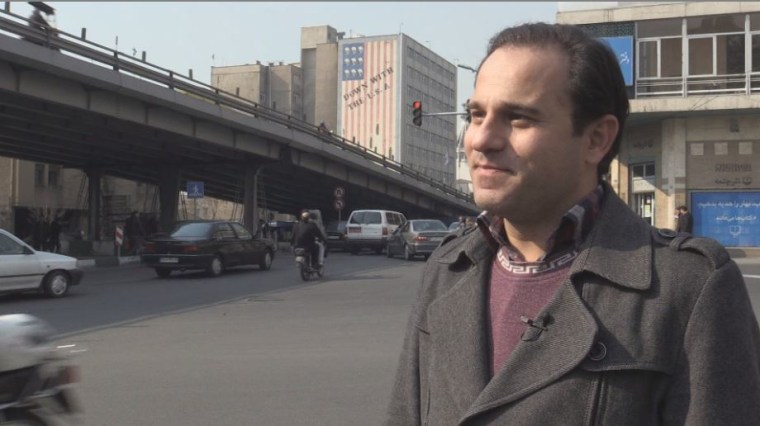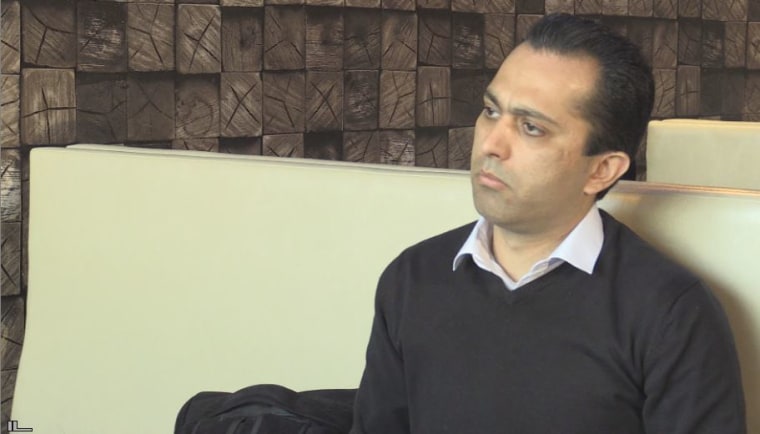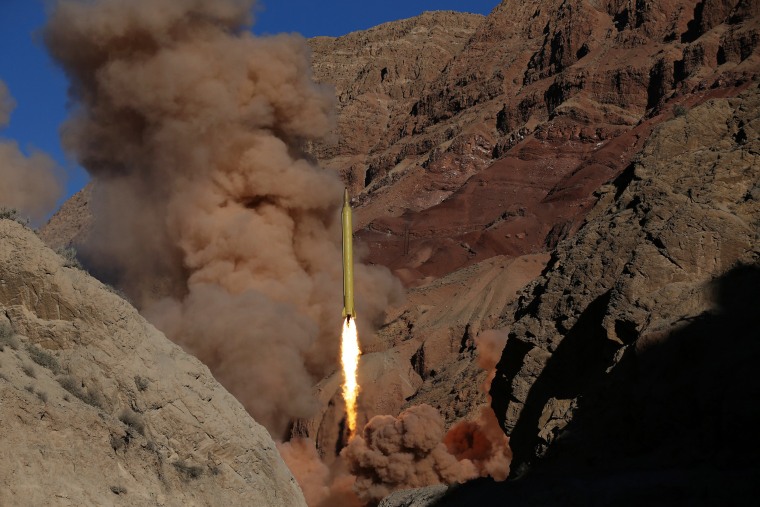TEHRAN — Since taking over arguably the most powerful office in the world, President Donald Trump has had Iran firmly in his sights, and not just on Twitter.
His executive order on immigration, currently suspended by a federal court, barred citizens from seven majority Muslim countries — including Iran — from entering the United States. The administration has imposed a fresh round of sanctions on Iranian individuals and entities over a recent missile test.
But let's not forget Twitter entirely.
Since assuming office, Trump has put Iran on notice via Twitter, saying Tehran is "playing with fire — they don't appreciate how 'kind' President Obama was to them. Not me!" Earlier this year, he branded the deal to curb Iran's nuclear program as "terrible."
Now Tehran is firing back, literally and rhetorically. This weekend, in a show of defiance, Iran's Revolutionary Guards conducted military exercises, testing indigenous missile and radar systems.
The war of words between Washington and Tehran could easily escalate into a shooting war.
In addition, Revolutionary Guards Gen. Amir Ali Hajizadeh warned that if the country saw the "smallest misstep from [its] enemies, our roaring missiles will fall on their heads."
Now some are becoming concerned that the conflict could move out of the realm of policy and rhetoric and onto the battlefield.
"Both sides, the American leadership and the Iranian leadership, are playing with fire," Fawaz A. Gerges, a professor of international relations at the London School of Economics, told NBC News. "There's a real danger that the war of words between Washington and Tehran could easily escalate into a shooting war."
There also seems to be a shift in attitude among regular Iranians, many of whom are traditionally pro-American.

"For the past 40 years, the Iranian government has tried to establish a nationwide hatred for the U.S. government and failed," Meisam Jebelli, 37, an English teacher in Tehran, told NBC News.
"Trump managed to do it in two weeks," he said.
Barbod Dejami, 36, a musician whom NBC News spoke to in a central Tehran cafe, also expressed a negative view of the United States.
"We, the Iranians, we see this belligerence and warmongering from America. It's as clear as day. I don't know who on Warth has appointed America police of the world," he said.
The concern among some in Iran is that the escalating war of words and sanctions could empower hard-liners in the Iranian regime who are seeking to escalate tensions between the two countries.

"The reason why I fear that the current tensions between the United States and Iran could easily escalate into a military confrontation [is] you have a domestic audience in Iran itself. The tensions could basically pour gasoline on a raging fire in Iran," Gerges told NBC News.
"More sanctions by the U.S. against Iran could embolden the hard-liners in Iran, and the hard-liners would basically benefit through any major escalation between the U.S. and Iran," he said.
Whether the tensions escalate into a full-blown conflict remains to be seen. For the time being, however, with senior U.S. officials lambasting the country as a destabilizing threat to the region and with Iran putting on displays of military might, the mood on the street in Tehran is likely to remain anxious, with fears of worse to come.
